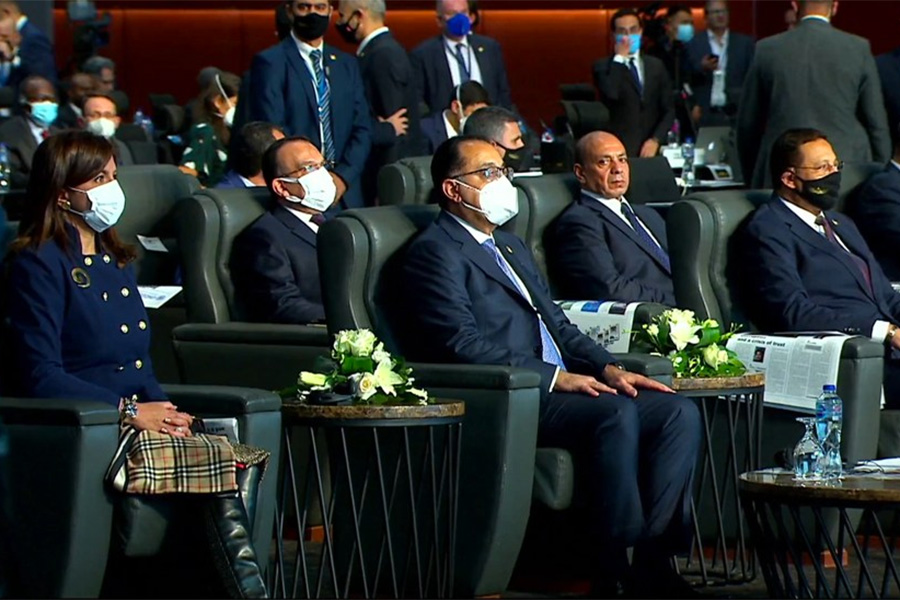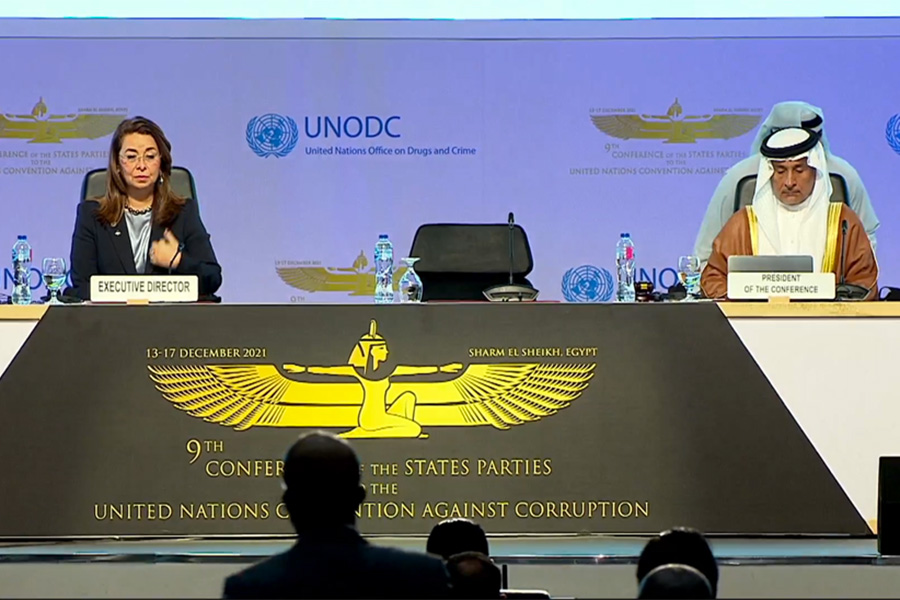“Corruption undermines development and prosperity, thwarts efforts to secure a decent quality of life, raises poverty rates, weakens confidence in public institutions, and negatively impacts human rights,” Madbouly said.
Madbouly made his remarks during the opening of the 9th session of the Conference of the States Parties (CoSP) to the UN Convention against Corruption (UNCAC), which is being hosted in the Egyptian Red Sea resort city of Sharm El-Sheikh from 13 to 17 December.
A record number of around 2,133 participants from 152 countries registered to participate in the conference, either in person or virtually, the UN information service said.
This includes minsters, heads of anti-corruption bodies, and civil society members.
United Nations Secretary-General António Guterres; Hassan Abdel-Shafi, the chairman of Egypt’s Administrative Control Authority and the president of the CoSP9; and Executive Director of the UN Office on Drugs and Crime (UNODC) Ghada Waly spoke during the session.
A number of Egyptian ministers, including Minister of Planning and Economic Development Hala El-Said, Minister of Emigration and Expatriate Affairs Nabila Makram, Minister of International Cooperation Rania Al-Mashat, and Minister of Youths and Sports Ashraf Sobhy attended the session.
The conference will review the implementation of the United Nations’ Convention against Corruption — the only legally binding universal anti-corruption instrument — and discuss preventing corruption and improving international cooperation to better tackle corruption and asset recovery.
Corruption, a multidimensional phenomenon, is one of the obstacles facing global sustainable development, Madbouly said during his speech.
“Corruption is a local as well as cross-border phenomenon that requires serious and fruitful cooperation.”

Egypt’s anti-corruption efforts
Egypt’s 2014 Constitution obliges state institutions to fight corruption and highlights the technical, financial, and administrative independence of regulatory authorities and independent bodies, Madbouly said.
The constitution also obliges relevant state bodies to partake in setting a national anti-corruption strategy, the premier said, noting that these commitments directly promote development efforts and human rights.
Egypt has adopted a national comprehensive programme since 2016 with the aim of stabilising the economy, attracting local and global investments, and reducing public debt rates, Madbouly said.
This is in addition to the state’s establishment of national projects that create job opportunities, improve citizens’ lives, and help irregular workers find permanent employment, Madbouly said.
“These efforts decrease corrupt practices,” Madbouly explained.
Furthermore, the premier highlighted Egypt’s efforts to enhance social protection, saying that the number of beneficiaries from the cash transfer programme ‘Takaful wi Karama’ (‘Solidarity and Dignity’) have reached 3.8 million families in 2021.
“The ‘Hayah Karima’ (‘Decent Life’) Presidential Initiative is at the top of the programmes aiming to improve the quality of life in Egypt, as it targets almost 60 million Egyptian citizens living across the countryside,” Madbouly said.
The initiative is worth $45 billion in investments.
“At the present time, caring for these groups, which had been marginalised for many years, is in itself a fight against corruption and forms of discrimination and inequality.”
Egypt also launched the 2021-2026 National Strategy for Human Rights, which placed fighting corruption, enhancing governance, and establishing the values of integrity and transparency among its main principles, Madbouly said.
Additionally, the premier shed light on the state’s prioritisation of efforts to automate government services, saying digitisation can curb corruption during public service provision by enhancing transparency and intensifying censorship over institutions.

Global action against corruption
In his speech during the session, UN Secretary-General Guterres called the conference a chance to “come together to strengthen cooperation and accelerate global action against corruption.”
He affirmed that fighting corruption is essential to protect human rights, promote democratic accountability, and achieve sustainable development.
“Let us revive hope and restore trust in institutions. Now is the time to act for a safer, more prosperous, and just future,” Guterres said.
In her opening remarks, Waly, the executive director of the UNODC and former Egyptian solidarity minister, urged bringing together all stakeholders, including political leaders, the private sector, civil society, and the media in the fight against corruption.
“The world loses trillions of dollars every year to corruption, at a time when every dollar is needed to increase public investment,” she said.
She described the coronavirus pandemic as a “global wake-up call” to support integrity.
Short link: